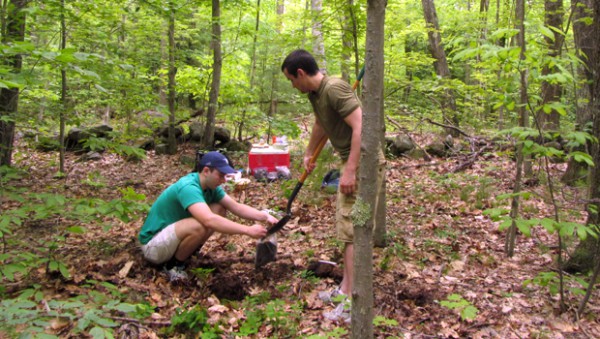
Climate change is predicted to manifest as a global increase in temperature accompanied by more frequent extreme weather events. To quantify how climate change affects plant stress tolerance and feeds back to greenhouse gas emissions, we will explore the extent and regulation of microbial intracellular C storage. We hypothesize that intracellular C storage both provides a route towards soil C stabilization and aids in plant stress tolerance.
Because of the broad diversity of granule-producing bacteria, and the frequent stresses microbes experience in soil, it is likely that intracellular C-storage is a much more commonly employed adaptive strategy than currently appreciated.
Field studies will focus on Harvard Forest sites that have experienced temperatures 5ºC above ambient for 8 years. Metagenomics, microbial community profiles and C-storage content will show C cycling and storage potential. Because the high complexity of natural soil samples can obscure underlying processes, greenhouse pot experiments using Harvard Forest soil planted with the annual grass Brachypodium distachyon will be used to model a plant-soil system. Applying acute or chronic warming stress will test how different manifestations of climate change affect plant biomass, microbial communities, and soil C storage. Stable isotopes and functional cell sorting using staining in conjunction with fluorescence-activated cell sorting (FACS) will isolate C-storing populations, which can then be characterized by metagenomics. By integrating individual cellular physiological perspectives with broad ecological perspectives, this approach will circumvent the cultivation bias, expand known bacterial diversity, and provide valuable physiological and genetic scaffolds to interpret sequencing data.
Department of Microbiology